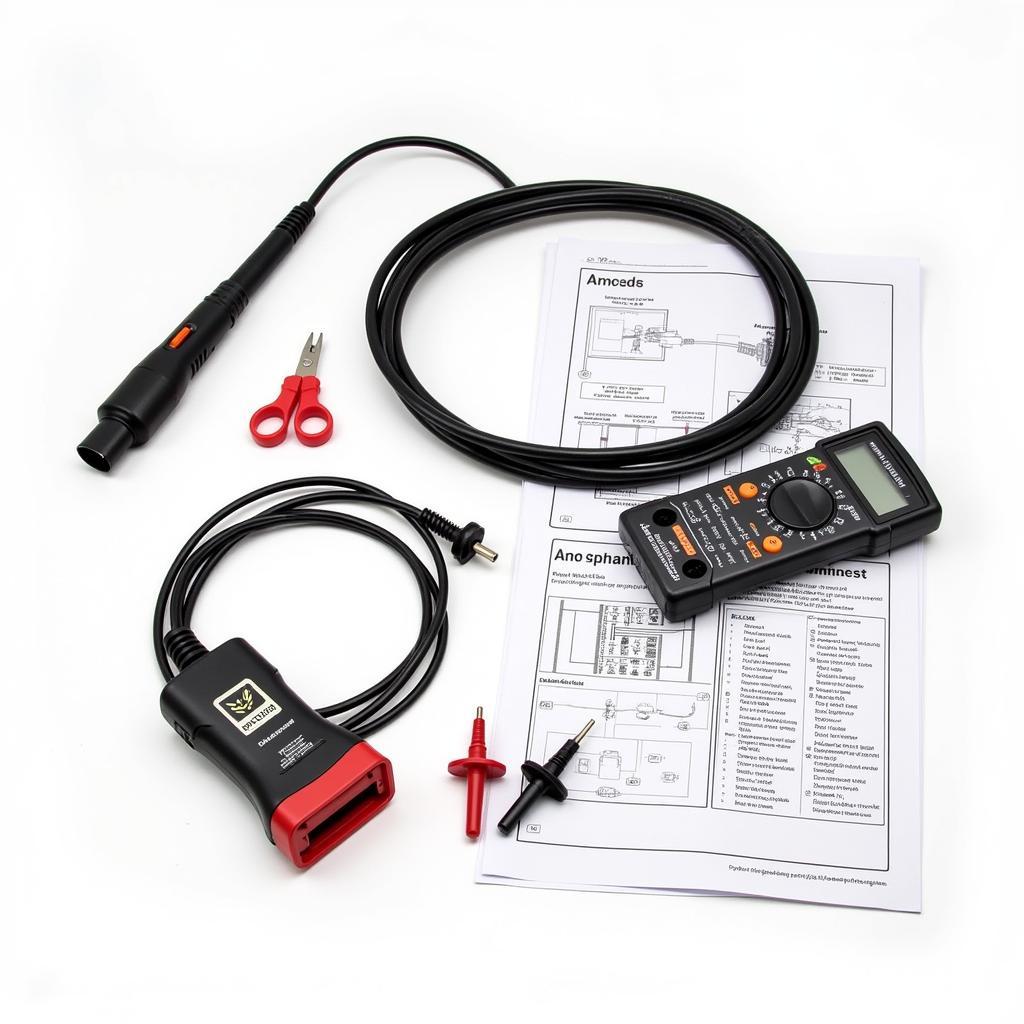The automotive industry is rapidly evolving, with electrical systems becoming increasingly complex. As a result, the need for specialized knowledge and tools in automotive electrical diagnostics and repair has never been greater. This is where Janlee Ann Foxwell comes in.
Understanding the Importance of Automotive Electrical Diagnostics
Modern vehicles rely heavily on intricate networks of sensors, actuators, and electronic control units (ECUs). These systems manage everything from engine performance and emissions to safety features and in-car entertainment. When problems arise within these complex networks, pinpointing the root cause requires a deep understanding of electrical principles and diagnostic procedures.
Common Automotive Electrical Issues
A wide range of problems can stem from faults within a vehicle’s electrical system. Some common issues include:
- Battery problems: Difficulty starting, dimming lights, and frequent jump-starts can indicate battery issues.
- Alternator malfunctions: A faulty alternator can lead to a drained battery and electrical system instability.
- Wiring issues: Damaged, corroded, or loose wiring can disrupt signal flow and cause various electrical gremlins.
- Sensor failures: Malfunctioning sensors can send incorrect data to the ECUs, leading to performance issues, warning lights, and other problems.
- ECU problems: The ECU is the brain of a vehicle’s electrical system. A faulty ECU can cause a wide range of issues, from engine misfires to complete system shutdowns.
The Role of Specialized Tools and Software
Accurately diagnosing and repairing these intricate systems necessitates the use of specialized tools and software. These tools provide technicians with the ability to:
- Read and interpret fault codes: Diagnostic scanners can retrieve stored fault codes from the vehicle’s ECUs, providing valuable clues about the nature of the problem.
- Monitor live data streams: Observing real-time sensor readings allows technicians to analyze system behavior and identify anomalies.
- Perform actuator tests: Activating components like solenoids, motors, and relays helps isolate faulty components.
- Program and configure ECUs: In some cases, reprogramming or updating an ECU’s software may be necessary to resolve complex issues.
 Automotive Diagnostic Tools
Automotive Diagnostic Tools
Empowering Technicians and Vehicle Owners
Equipping oneself with the right knowledge and tools is crucial in the ever-evolving landscape of automotive electrical systems. For technicians, this means staying updated on the latest diagnostic procedures, investing in high-quality tools, and pursuing ongoing training.
Vehicle owners, while not expected to become expert diagnosticians, can benefit from a basic understanding of their vehicle’s electrical system. Recognizing the signs of common electrical problems can help them address issues proactively and communicate effectively with technicians.
“The ability to accurately diagnose and repair complex electrical issues is becoming increasingly critical in the automotive industry. Investing in the right training and tools is essential for any technician looking to thrive in this field,” says John Miller, a seasoned automotive electrical engineer with over 20 years of experience.
Seeking Expert Assistance
While understanding the basics is beneficial, some automotive electrical problems require the expertise of a qualified technician. If you’re experiencing persistent electrical issues with your vehicle, it’s always best to seek professional help.
“Attempting to diagnose and repair complex electrical problems without the proper knowledge and tools can often lead to further damage and costly repairs,” cautions Sarah Thompson, an ASE certified master technician specializing in automotive electrical systems.
Conclusion
The increasing complexity of automotive electrical systems underscores the need for specialized knowledge, tools, and expertise. By understanding the basics of automotive electrical diagnostics, vehicle owners can be better equipped to address potential issues and communicate effectively with technicians. For automotive professionals, staying ahead of the curve through ongoing training and investment in the latest diagnostic technology is crucial for success in this demanding field.
Need help with a tricky automotive electrical issue? ScanToolUS can help. Contact us at +1 (641) 206-8880 or visit our office at 1615 S Laramie Ave, Cicero, IL 60804, USA.
FAQs
1. What are some signs of a failing alternator?
Dimming headlights, dashboard warning lights, and a dead battery are common signs of a failing alternator.
2. Can I jump-start my car if the battery is completely dead?
While possible, it’s not recommended to jump-start a completely dead battery. It’s best to have the battery charged or replaced.
3. How often should I have my car battery checked?
It’s a good idea to have your car battery checked at least once a year, especially in extreme climates.
4. What should I do if my check engine light comes on?
It’s important to have your vehicle diagnosed by a qualified technician as soon as possible when the check engine light illuminates.
5. Can aftermarket car stereos cause electrical problems?
Improperly installed aftermarket car stereos can potentially cause electrical problems. It’s best to have them installed by a professional.

